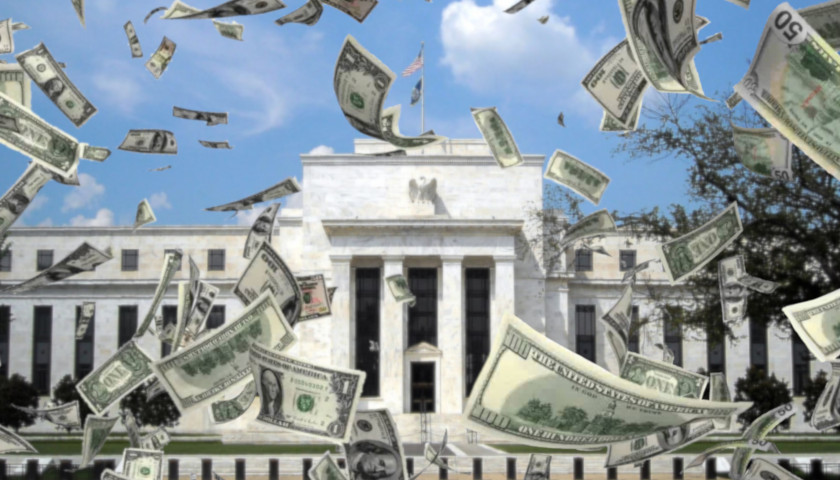by Harry Wilmerding
The Federal Reserve announced Wednesday that it would begin scaling back its monthly bond purchases in November, marking the first step towards ending its pandemic stimulus as inflation surges.
The scaling of bond purchases, more commonly known as tapering, will start “later this month,” the Federal Open Market Committee (FOMC) said in a statement. The Federal Reserve will reduce its purchases by $15 billion each month — $10 billion less in Treasury bonds and $5 billion less in mortgage-backed securities — from the current $120 billion figure.
The decision to scale back asset purchases came “in light of the substantial further progress the economy has made toward the Committee’s goal since last December.” FOMC also noted that inflation has grown faster than experts anticipated but still referred to the spike in prices as “transitory.”
 “Inflation is elevated, largely reflecting factors that are expected to be transitory,” the statement said. “Supply and demand imbalances related to the pandemic and the reopening of the economy have contributed to sizable price increases in some sectors.”
“Inflation is elevated, largely reflecting factors that are expected to be transitory,” the statement said. “Supply and demand imbalances related to the pandemic and the reopening of the economy have contributed to sizable price increases in some sectors.”
The FOMC said the decision is not final, and it will make adjustments to the tapering process when necessary.
FED DECISION: The Federal Reserve votes to leave interest rates unchanged and says it will start tapering bond purchases this month. https://t.co/F3A0ujL7OI pic.twitter.com/d0moImbyxm
— CNBC (@CNBC) November 3, 2021
“I’m not surprised by the announcement, nor by the elevated pace of the taper given the inflationary pressure we’re facing,” Tyler Goodspeed, an Economics Fellow at the Hoover Institution, told the Daily Caller News Foundation. “I think the fed, like other major central banks around the world, are having to taper more abruptly and more aggressively than they otherwise would have had to do precisely because they continued asset purchases at emergency levels even as inflation expectations slipped above target.”
Meanwhile, the FOMC announced it would keep its interest rates around the current near-zero figure and stressed that the scale back in asset purchases is not a sign that the committee will eventually hike rates. Officials do not see rates increasing until the tapering ends around the July 2022 target.
Strong demand for goods, supply chain disruptions, and labor shortages have caused the consumer price index to increase 5.4% year-over-year, the highest jump since January 1991. FOMC officials said they want to see inflation stay around 2% over the long run.
“This is a feeble response to a growing inflation bomb,” Stephen Moore, former economic advisor to former President Donald Trump, told the Daily Caller News Foundation.
“The Fed has been wrong for six months on inflation. And they are still Monday morning quarterbacking on the inflation tax that is socking working class families right in the wallet,” Moore added.
– – –
Harry Wilmerding is a reporter at Daily Caller News Foundation.




